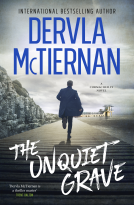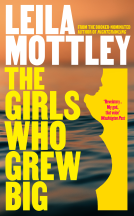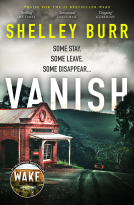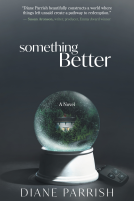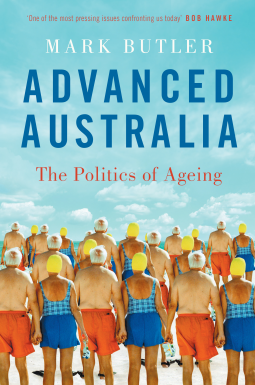
Advanced Australia
The Politics of Ageing
by Mark Butler
This title was previously available on NetGalley and is now archived.
Send NetGalley books directly to your Kindle or Kindle app
1
To read on a Kindle or Kindle app, please add kindle@netgalley.com as an approved email address to receive files in your Amazon account. Click here for step-by-step instructions.
2
Also find your Kindle email address within your Amazon account, and enter it here.
Pub Date Sep 01 2015 | Archive Date Nov 14 2015
Description
The average Australian's life expectancy has increased by twenty-five years over the past century—from mid fifties to early eighties—a monumental achievement with huge political impact. For decades to come ageing will touch almost every area of policy—retirement incomes, housing, employment, urban design, health...
The greying Baby Boomers are leading this debate, both because of the size of their generation, as well as their history of reshaping every phase of life in their own image.
Advanced Australia takes up this challenge and makes the case for a more positive approach to ageing and one that argues for the continuing contribution older Australians make to our community.
Mark Butler has been the Labor Member for Port Adelaide in the federal parliament since 2007 and served as Minister for Ageing in the Gillard government. He has also held the ministries of Mental Health, Housing, Homelessness, Social Inclusion, Climate Change and the Environment. In 2013 Mark was awarded the Alzheimer's Disease International Award for Outstanding Global Contribution to the Fight against Dementia. Mark is currently the Labor spokesperson for the Environment, Climate Change and Water and national president of the Australian Labor Party.
Advance Praise
'One of the most pressing issues confronting us today.' BOB HAWKE
Available Editions
| EDITION | Paperback |
| ISBN | 9780522868937 |
| PRICE | A$27.99 (AUD) |
Average rating from 3 members
Featured Reviews
 Pat M, Reviewer
Pat M, Reviewer
5 stars I recommend it highly to anyone interested in aged care, especially politicians and those working in the sector.
Former Labor Minister for the Ageing, Mark Butler, has done an excellent job of pulling together a lot of disparate information to explain the sorts of challenges faced by governments when it comes to figuring out what support will be needed for future generations as they (we) age.
I’ve been a volunteer with older people since the 1970s and am personally familiar with many of the situations he describes. I think he’s done an admirable job of summing up the various ages and stages. This book concentrates on the Third Age (‘active’ retirement post-full-time work) and the Fourth Age (the slowing down and decline before eventual death).
He writes well and only occasionally succumbs to the temptation to show his partisan colours when lauding improvements made to social services and health care by Labor governments.
There is no simple method of ensuring everyone gets the help they want or need, just as there are no two situations that are identical. As the Minister for Ageing (and other portfolios) in the Gillard Labor government, he took the opportunity to meet many older people around the country and asked them to share their stories and offer their opinions.
He discusses everything from finance to healthcare and levels and types of activity. He calculates how much super people are likely to have saved up and whether the pension needs adjusting and how.
He also compares Australia with other OECD countries and shows how well we’re doing and where we could do better.
One major issue everyone worries about is the Boomers. The Baby Boomer generation offers a mixed bag of problems and opportunities.
On the one hand, they are likely to be more independent and outspoken than their stoic parents. But on the other, the older ones haven’t yet had time to accumulate substantial superannuation savings and may find it difficult to live in the style they are accustomed to without continuing work.
So people may choose to work longer, at least part-time. Also, as housing becomes less affordable, there will be people retiring in the future who are still paying off mortgages. Things have changed a lot.
The Boomers are also a bigger cohort than previous generations, which is making service providers nervous. Butler points out that there may be more frail elderly looking after each other than previously, and more carers who need support.
“Assessment of the needs of an older Australian requiring aged care should also include a needs assessment of their carer. In ‘Living Longer, Living Better’, we increased funding for respite programs and counselling services targeted at carers, but governments must continue to pay close attention to the level of unmet need for support among carers.”
We also have large CALD communities (culturally and linguistically diverse) who should be considered when it comes to things like culturally appropriate food and behaviour. Not everyone has grown up or grown old with porridge for breakfast.
He is critical of the patronising tones and ‘baby-talk’ that staff seem so inclined to use in many nursing homes. He reminds us often that older people are just us, some years from now and are not a homogeneous group. Each generation ages a bit differently from the previous one, also.
There are enough statistics to choke a horse, but they are presented conversationally in the text and make for interesting reading. There are plenty of formal tables scattered throughout with an extensive selection at the end as well as a reading list for further information.
All in all, it’s almost everything you could want to know about growing old in Australia, ageing in place, and how long and how well we’re all likely to live. (Pretty long and reasonably well, we hope!)
Many thanks to NetGalley for allowing me to read and review this useful resource prepared by a talented, caring former (and future?) Federal Minister.
Readers who liked this book also liked:
Publishers Lunch
General Fiction (Adult), Nonfiction (Adult), Teens & YA



